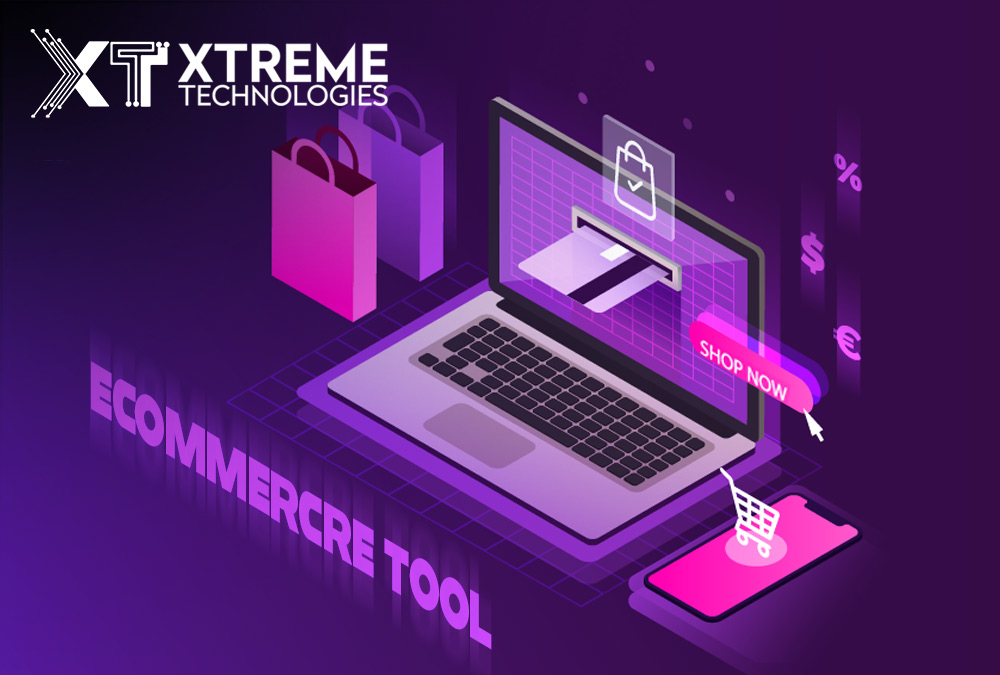
7 Essential eCommerce Tools for a Victorious Online Business
All, Business, E-commerce-business, Shopify,
Published on: July 08, 2022
By 2020, surveys and studies show that only 2.86% of e-commerce site visits turn into purchases. It means that businesses need to use tools to increase their e-commerce stores' revenue further. Fortunately, the eCommerce tool has everything you need to build and grow your web-based store. Whether you need to get more leads, increase your SEO's organic traffic, or increase financial control, there is a tool available. We will share seven essential eCommerce tools needed to run every small business.
What are E-commerce Tools?
E-commerce tools are parts of software such as apps, platforms, and plugins that help business owners improve their online store systems. Although e-commerce tools are different, they all have the same task: to streamline, streamline, and automate running and growing an e-commerce store.
Here are Top 7 Ecommerce Tools
1. E-commerce Platforms
To open an online store, you need a good e-commerce platform. An e-commerce platform is one such software. An eCommerce store that takes care of basic needs from product pages to order fulfillment. These examples include:
- Shopify
Shopify is a complete e-commerce platform that helps promote and run an online business. E-commerce includes a robust set of tools such as a website builder with paid and free themes, built-in marketing tools to help build, implement and analyze digital marketing campaigns, and 100 payment gateways.
- Wix
Wix offers a drag-and-drop website builder for websites. It is also an e-commerce platform covering the basics: custom templates, web hosting, and domain name registration. Capabilities include tracking orders and accepting online payments. Additional innovative features such as analytics tools and robust inventory management may require investment in different plugins.
- BigCommerce
BigCommerce is an eCommerce platform designed for enterprise businesses. It offers web hosting, multiple customization options, SEO analytics tools, and multi-channel selling. But apart from big business, some of BigCommerce's tools are designed for small businesses, which aren't as agile or user-friendly as other options.
2. Content Creation
Creating content for an e-commerce website can be a powerful way to increase visibility. It's also relatively straightforward, thanks to e-commerce tools like:
- Kenova
Kenova is an e-commerce tool that helps all groups and allows people with minimal experience. Their job is to create happy designs. Whether creating a brand logo or an image for your online store, Kenova's drag and drop tools make it easy to develop well-designed assets.
- WordPress
Not all e-commerce websites require a blog. But for those who do, WordPress can be helpful. WordPress can help you develop a blogging strategy for your website. So what can build better customer relationships, establish a brand, and generate recurring traffic?
3. Communication and Internal Organization
Ecommerce tools can also be beneficial for an online business's internal operations. A dedicated space for employee communication could be a way to streamline project management.
- Slack
You and your employees can communicate in real-time using Slack, a messaging platform designed for workers. Remote workers can benefit from Slack since it enables teams to organize, manage each other, and communicate daily tasks.
- Coda
Coda is a powerful productivity tool that you can use for managing various aspects of your business, such as marketing calendars and tracking documents. In addition to being highly editable and customizable, it is an excellent tool for organizing projects within an organization. Coda also offers a Shopify pack that integrates with your Shopify store.
4. Sales and Logistics
An online business relies heavily on sales and logistics. Some eCommerce platforms offer these tools as part of their overall services, while others provide them separately.
- Shipwire
Shipwire fulfills orders for retail, direct-to-consumer, and dropship channels. It also integrates with your existing shopping cart and marketplace to provide logistic support and international shipping capabilities.
5. Marketing
Many different marketing tools are available today, from content marketing to paid advertising.
Some of which are:
Read Also: Advantages of Integrated Records Management Solutions in 2022
- Mail Champ
Email newsletters are a powerful e-commerce tool that provides users with a live channel and a place to share updates, promotions, and other information. MailChimp is an email platform that lets you streamline the marketing process by creating, sending, and tracking email marketing campaigns. Mailchimp integrates with Shopify, and it integrates your Shopify data — including customer, product, and purchase data — with Mailchimp.
- Permanent Contact
Permanent Contact is an all-in-one marketing tool best known for its email marketing services. This platform is more suitable for new business owners as it provides email lists to online businesses. It helps to manage them and track outgoing emails.
6. Analysis
E-commerce analytics measures user behavior, performance trends, and return on investment (ROI). With the right tools, it's easy to make informed decisions that potentially increase sales and reduce costs.
- Google Analytics
It is an e-commerce tool that collects insights about returning visitors and data about real-time statistics such as how many people are on the site? Where is the traffic coming from?
- Correctively
It is a digital experiments platform that sends visitors a personalized, targeted message to an e-commerce site. That is, you can gain insight into the usefulness of your experiments and use this data to determine which content will change.
7. Customer service
The importance of an e-commerce tool that assists online shoppers during their customer journey cannot be overstated. A customer support platform should help you retain customers as well as attract new ones at the same time. Ecommerce web design services are top-rated these days for creating e-commerce solutions tailored to your audience and business model.
- Acquire
Acquire's platform helps online stores provide high-quality customer support, streamlining workflows and customer information for customer service agents. Think of it as a unified experience: Customer service representatives can see queries across all digital channels in one place and resolve issues more efficiently.
Conclusion
E-commerce tools and online stores are essential to the success of your website. You can grow your business with just one excellent and accurate store tool. Moreover, design an e-commerce website that is aesthetically pleasing and easy to navigate. Automate workflow and try to keep daily tasks organized. Create marketing campaigns to gain maximum customer visibility by establishing brand identity.






Recent Comments